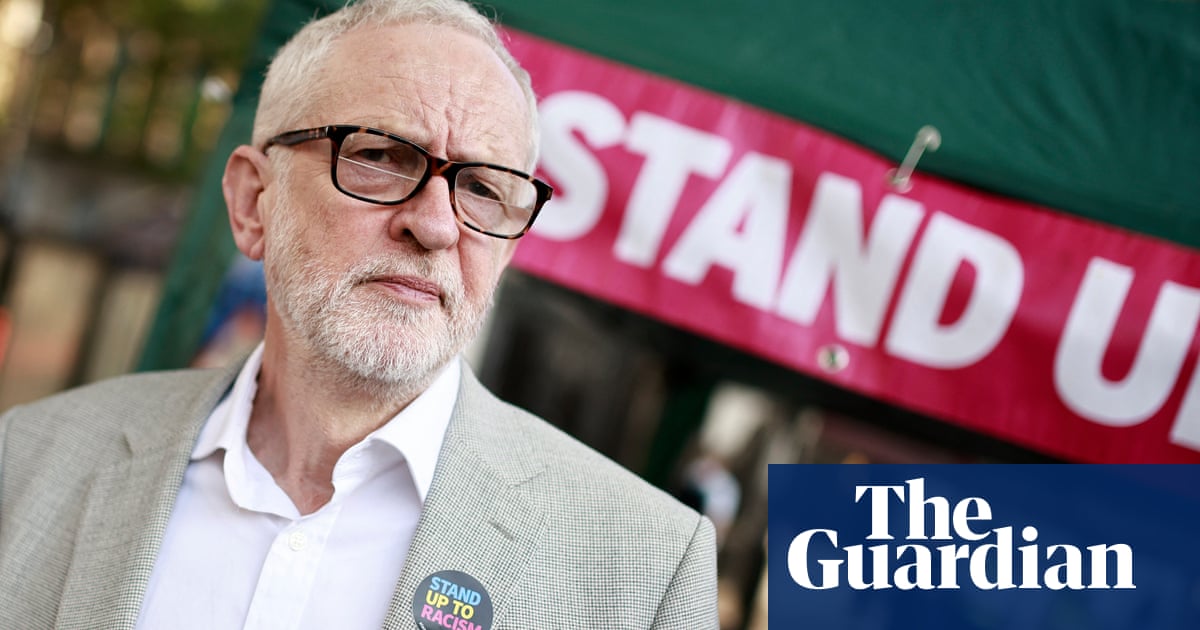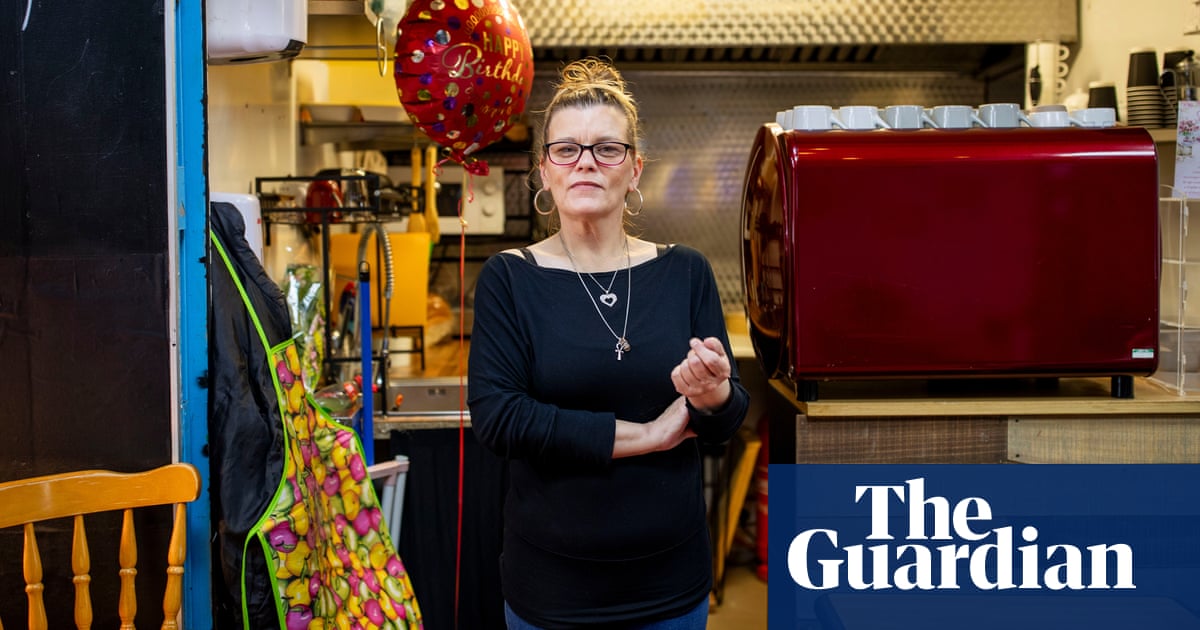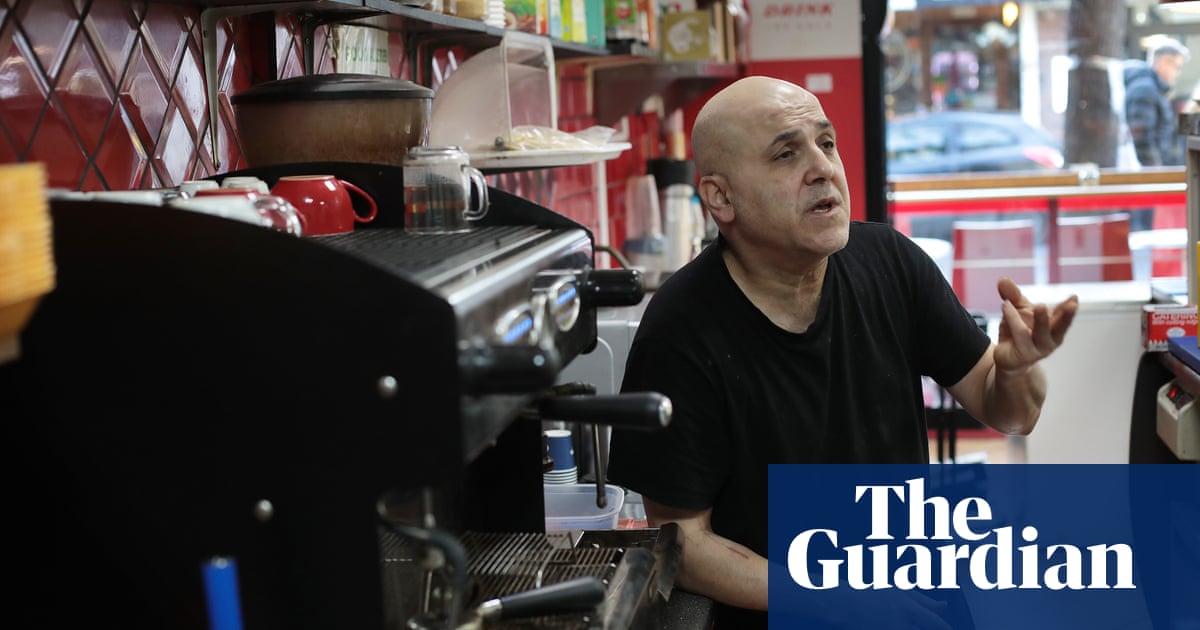
Jeremy Corbyn is making a final push to try to hold on to his parliamentary seat in one of the more unpredictable battles of the election, made more uncertain because many voters still seem to believe he is the Labour candidate.
With a week to go until polling day, the former Labour leader’s campaign team is trying to marshal crowds of volunteers to knock on doors in the Islington North seat he has represented since 1983, reminding them that this race is different.
Corbyn lost the Labour whip in 2020 over comments about antisemitism. With no resolution to the disagreement he is standing as an independent, with Labour putting up the local councillor Praful Nargund.
This week the first constituency-specific poll of the campaign put Labour’s support at 43% and Corbyn’s at 29%. But when people were asked to pick directly between Corbyn and Labour, he was ahead, by 48% to 40%.
Canvassers from both sides say this mixed result points to the fact that quite a lot of local voters seem not to have noticed that the MP who has represented them for more than 40 years, and had a 26,000 majority in 2019, is no longer with the Labour party.
“We spoke to one person who said ‘I’ve already voted by post, and voted Labour – I love Jeremy,’” one Labour source said. “But you’ll knock on other doors and people go ‘no, not Labour. Oh, hang on, it’s not Jeremy any more.’”
Corbyn’s team accept that the snap election has left his campaign particularly exposed in lacking the data and infrastructure that comes with being a party candidate, given the lack of time to build up a parallel system.
The hope is that this gap can be made up through sheer numbers and enthusiasm, with 1,000 people knocking on doors on his behalf last weekend and some volunteers taking holiday to travel from as far away as Northern Ireland.
In a canvassing session on Wednesday evening billed as “Gooners 4 Corbyn”, which began outside Arsenal’s Emirates Stadium with people encouraged to go out wearing the team’s shirts, volunteers were instructed to firstly make sure voters knew Corbyn was standing as an independent, so they “don’t accidentally vote Labour”.
“The poll was interesting because it basically tells us what we already knew – that we need to tell people it’s either Jeremy or the Labour candidate,” a source in Corbyn’s campaign said.
They added: “Not everyone knows that he’s standing as an independent, which is a point we need to get across. There is also a worry among some voters that if they vote for Jeremy they could let the Tories in. But the poll lets us show there is clearly no chance of that happening.
“And then there’s this assumption from leftwing people that Jeremy’s going to win easily, to walk it, and so it’s fine for them to, say, vote Green. So that’s another thing we need to do – tell people that it is close.”
As well as the confusion there is some understandable acrimony in the aftermath of the break-up of a four-decade-long political union.
While canvassers say the rival campaigns are generally amicable when they meet, which is not uncommon in a small, urban constituency, there are grumbles in Labour that some of Nargund’s Labour colleagues on Islington council have been notably quiet in their backing.
Similarly, the social media channels for the local Labour party have been conspicuously silent for months, with party insiders claiming this was because Corbyn-sympathetic members have refused to divulge the login details.
In the most public example of these split loyalties, the chair of the local Labour party quit a week ago after being spotted campaigning for Corbyn, trying unsuccessfully to hide behind a hedge when she was caught.
Some of the roughly 50 canvassers who massed outside the Emirates Stadium before going to knock on doors in a nearby housing estate stressed their often very personal reasons for taking part.
Pam Burton, from Vauxhall in south London, said she wanted to support “a wonderful constituency MP”. She said: “My cousin lives here, and she absolutely adores him. I just think it’s very sad and very unfair that he has been ousted from being allowed to represent his constituency.”
Emmie McGee, another volunteer, said: “I’m a working-class, disabled, queer person and I haven’t seen anybody in politics represent somebody like me and my community the way that Jeremy Corbyn does. When he was Labour leader his manifesto spoke to me, and spoke to people I care about.”
Will the enthusiasm be enough? In a contest unlike any other in this election it is impossible to say, even if some of Corbyn’s supporters say he faces an uphill battle. Labour is also cautious, but perhaps slightly less so. “The thing about Jeremy is that he always overestimates how popular he is,” one party source said.












